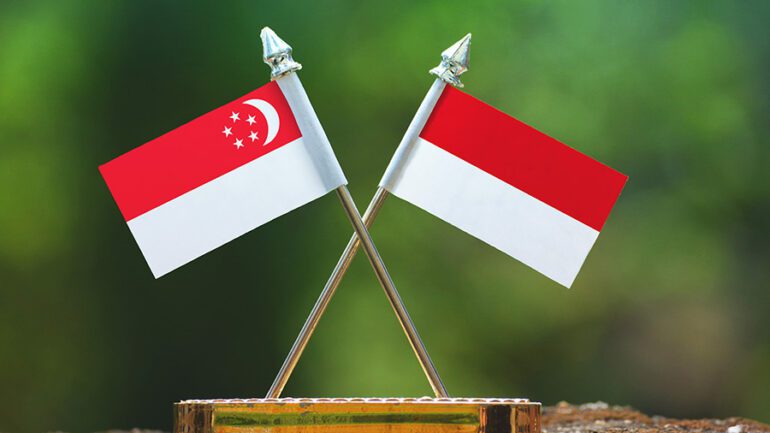TL;DR:
- Singapore and Indonesia have partnered to develop a Bahasa Indonesia AI tool.
- Four Indonesian entities signed an agreement with AI Singapore.
- The goal is to create an open-source Large Language Model (LLM) tool for Bahasa Indonesia.
- LLMs are essential for processing and understanding language.
- Bahasa Indonesia represents only 0.6% of online content, highlighting the need for this project.
- The collaboration aims to address the underrepresentation of Southeast Asia in LLMs.
- AI Singapore and Indonesian officials foresee significant economic growth potential through AI.
- Bahasa Indonesia was recently designated as the 10th official language of the Unesco General Conference.
Main AI News:
In a significant stride towards fostering artificial intelligence (AI) innovation, Singapore and Indonesia have forged a groundbreaking partnership. This collaboration, formalized through a letter of intent signed by four Indonesian entities and AI Singapore on November 30 in Jakarta, aims to co-create a cutting-edge Large Language Model (LLM) tool in Bahasa Indonesia, inspired by the technology underpinning ChatGPT and Google’s Bard.
The primary objective of this strategic agreement is to pool resources and expertise to develop an open-source LLM tool that will cater to a broad spectrum of users, as stated in their joint announcement. The participating Indonesian entities include the National Research and Innovation Agency and the Collaboration for Research and Innovation in Artificial Intelligence (Korika). Additionally, two AI tool development firms, Glair.ai and Datasaur.ai, with the strong backing of venture capital firm GDP Venture, are actively involved in this collaborative effort.
LLMs are pivotal in processing vast volumes of data and mastering language intricacies, enabling them to analyze text, decipher contextual nuances, generate human-like responses to inquiries, and perform various language-related tasks. The surge in the popularity of such tools gained momentum following the advent of ChatGPT by OpenAI on November 30, 2022, providing accessibility to everyday users.
A noteworthy observation highlighted in their joint release is that Bahasa Indonesia represents a mere 0.6% of online content, according to statistics from global research firm Statista, which was released in January. In stark contrast, English accounts for a substantial 58.8% of online content. This disparity underscores the pressing need for intensified research and development endeavors, specifically tailored to address the distinctive linguistic nuances and requirements of Bahasa Indonesia.
Darius Liu, Head of Strategy, Partnerships, and Growth at AI Singapore, emphasized the tremendous potential that LLM tools hold across various sectors of the economy. However, many such tools predominantly originate from the United States or China and may not be ideally suited for Southeast Asia. This collaborative effort is pivotal in bridging the gap and ensuring that LLMs cater effectively to the region’s needs, as highlighted during the signing event at Plaza Senayan mall in central Jakarta.
AI Singapore, established in 2017, has played a pivotal role in consolidating the efforts of research institutions within Singapore to foster knowledge in the field of AI and enhance the nation’s AI capabilities. It also actively collaborates with international partners to pioneer new technological solutions.
Nezar Patria, Indonesia’s Deputy Minister of Communication and Informatics, emphasized how AI has significantly enhanced workforce efficiency in the country and holds immense potential for future growth. He projected that by 2030, AI could contribute a staggering $366 billion (S$488 billion) to Indonesia’s gross domestic product, with nearly $1 trillion in added GDP expected across Southeast Asia.
The event also witnessed the presence of the Indonesian Ambassador to Singapore, Suryo Pratomo, underscoring the significance of this collaboration. This landmark agreement follows the recent designation of Bahasa Indonesia as the 10th official language of the Unesco General Conference during the 42nd session of the General Conference in Paris on November 20. This esteemed recognition places Bahasa Indonesia in the esteemed company of languages such as English, Arabic, Mandarin Chinese, French, Spanish, Russian, Hindi, Italian, and Portuguese as the official language of the conference.
Conclusion:
The collaboration between Singapore and Indonesia to develop a Bahasa Indonesia AI tool is a strategic move to address the language’s underrepresentation in the digital landscape. This initiative not only supports linguistic diversity but also opens doors for economic growth in the region, as AI continues to play a pivotal role in various industries. The recent recognition of Bahasa Indonesia as an official language further underscores the significance of this endeavor in the global context.

